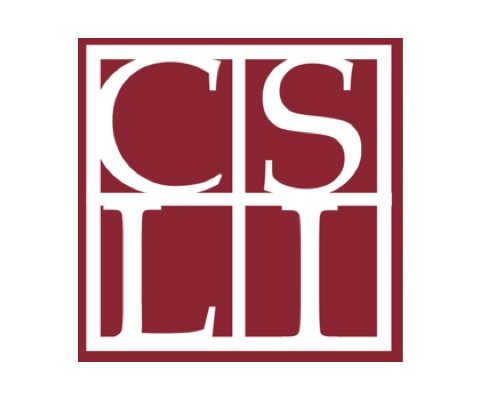Back to series


FOCUS OF THE MONTH: WHAT IS TRUTH?
Learn more in our Dawn Treader Magazine
 It’s probably quite significant that the question of truth was raised in the Bible by Pontius Pilate, a Roman official who doubtless was very well off materially and politically. Despite the material wealth and political rights we possess in abundance in the Western world today, many people feel a great deal of emptiness and meaninglessness in their lives, due to a lack of understanding of the nature of truth. The desire to know the truth is part of our God-given human nature, and it is important to properly foster its growth in our children.
It’s probably quite significant that the question of truth was raised in the Bible by Pontius Pilate, a Roman official who doubtless was very well off materially and politically. Despite the material wealth and political rights we possess in abundance in the Western world today, many people feel a great deal of emptiness and meaninglessness in their lives, due to a lack of understanding of the nature of truth. The desire to know the truth is part of our God-given human nature, and it is important to properly foster its growth in our children.
For each week, ask the question over an unhurried meal. Let the children think about it and then offer their own answers. The children should talk more than the parents. Throughout the week, offer the different reasons highlighted and let the children discuss them. (Parents, read through the relevant Bible passages in advance.) Challenge the children to look up other verses addressing the question. Do the same for the following questions each week for the month.
QUESTIONS TO HELP YOUR FAMILY GROW
Week One:
What is the difference between truth and falsehood?
Read: Joshua 24:14, Hosea 4:1-6, Romans 1:18-21
- Truth is whatever is in accordance with the way in which God created the world; falsehood is anything that goes against God’s reality, even if it still “exists” in a sense, in this fallen world.
- Truth is more than just facts and appearances: truth is knowledge of what is right in God’s sight, rather than man’s alone.
- Human beings have been created to seek truth, but we cannot know all truth in ourselves, and so we need God to lead us to the Truth; or we can easily be led astray by falsehood.
- The devil is the “father of lies” (John 8:44), and he is behind every lie circulated in the world today; he can only be defeated by God’s Truth.
Week Two
How can we know the difference between truth and falsehood in the world?
Read: Proverbs 12:19, 1 John 4:1-5:20
- Truth is always good — even when it is sometimes painful to discover or tell the truth, the ultimate result leads to increased righteousness and trust; falsehood, even when we grow accustomed to it, ultimately destroys.
- Truth shows itself in acts of love.
- The truth stretches our understanding: it frequently takes us some time to discover it behind the tangle of false agendas that surround us in our worldly circumstances — politically, socially, and materially.
- Just because something is commonly accepted as “fact” does not make it true: it must be tested by the only Truth of God’s Word in order to discern whether it is in fact true or false.
Week Three:
What does the Bible mean by “truth”?
Read: Exodus 34:6, Psalm 85:7-13, Daniel 10:21, John 14:6 and 17:17
- Truth, in Scripture, is one of the ways of describing Who God is — just as He is Love or Wisdom or every other good thing; so coming to understand Truth requires that we come to know God, not just “facts” of experience.
- Jesus came to bring the truth — He is the Truth.
- Truth must be exercised in love and righteousness — all these good things are bound up together, because they are all part of God’s Nature and shown to us by Him.
- The ultimate Truth is therefore God Himself; while we may know the truth about other things without knowing God, it is only a partial knowledge of Truth until we know and acknowledge Him as the source and foundation of all Truth.
Week Four:
How can we know and apply truth practically?
Read: John 8:31-32, 16:7-13, and 18:37-38
- As Pilate’s (unanswered) question shows, gradually coming to understand what the Truth is in each situation is not a one-time, simple matter; we have to turn to God for guidance in finding what the truth is for dealing with any new, unknown situation.
- But the stronger we grow in His faith and wisdom granted to us, the more we will recognize the Truth when we see it working out in our world.
- Truth has a very practical aspect: knowing what is true or false according to God’s reality helps us to determine what is right or wrong for us to do.
- Truth helps us evaluate what we are doing in light of the ultimate purpose and outcome of all creation.
C.S. Lewis Institute
Author
C.S. Lewis Institute, in the legacy of C.S. Lewis, works to develop wholehearted disciples of Jesus Christ who will articulate, defend, share, and live their faith in personal and public life. Founded in 1976 by Dr. James Houston and James R. Hiskey, the Institute provides leading teachers who address important issues of the day from the perspective of Biblical orthodoxy, while also providing discipleship for individuals in small groups.

 COPYRIGHT: This publication is published by C.S. Lewis Institute; 8001 Braddock Road, Suite 301; Springfield, VA 22151. Portions of the publication may be reproduced for noncommercial, local church or ministry use without prior permission. Electronic copies of the PDF files may be duplicated and transmitted via e-mail for personal and church use. Articles may not be modified without prior written permission of the Institute. For questions, contact the Institute: 703.914.5602 or email us.
COPYRIGHT: This publication is published by C.S. Lewis Institute; 8001 Braddock Road, Suite 301; Springfield, VA 22151. Portions of the publication may be reproduced for noncommercial, local church or ministry use without prior permission. Electronic copies of the PDF files may be duplicated and transmitted via e-mail for personal and church use. Articles may not be modified without prior written permission of the Institute. For questions, contact the Institute: 703.914.5602 or email us.
Speakers

C.S. Lewis Institute
Author
Team Members
C.S. Lewis Institute
Author
C.S. Lewis Institute, in the legacy of C.S. Lewis, works to develop wholehearted disciples of Jesus Christ who will articulate, defend, share, and live their faith in personal and public life. Founded in 1976 by Dr. James Houston and James R. Hiskey, the Institute provides leading teachers who address important issues of the day from the perspective of Biblical orthodoxy, while also providing discipleship for individuals in small groups.


